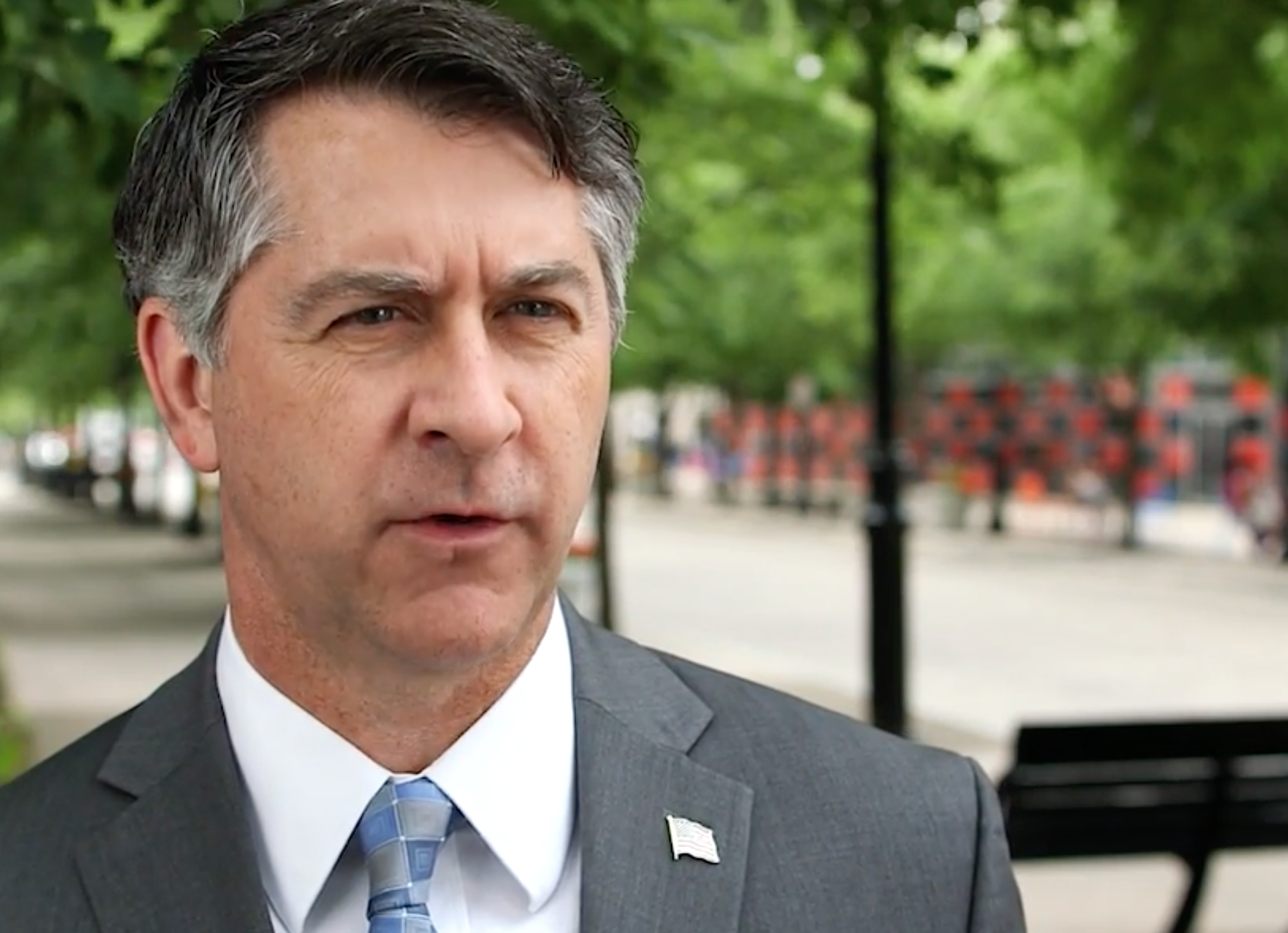
Mayor John Dickert of Racine, Wisconsin is one of a group of 150 mayors from around the Great Lakes in the U.S. and Canada that are taking a stand against what has become known as the “Waukesha Diversion”. This group, members of the Great Lakes and St. Lawrence Cities Initiative, are suing the compact council for what they believe to be a threat to the well being of the Great Lakes. Dickert has been one of the most vocal opponents to the decision by 8 Great Lakes governors to allow the diversion of water from Lake Michigan into the Waukesha, Wisconsin (a community that does not border the lake) water system. We met Mayor Dickert at the Great Lakes St. Lawrence Cities Initiative meeting in June 2016, and heard a little bit from him on his connection to the water, and his concerns about the diversion. Check out the video here:
Waukesha’s aquifer is tainted with radium, and Waukesha mayor Shawn Reilly has been seeking permission to use 8.2 million gallons a day of Lake Michigan water for his entire county’s water supply. The water then would be treated and released back into Lake Michigan via the Root River, a river that runs through Mayor Dickert’s community. The Great Lakes Bureau spoke to Dickert this week to get his take on the matter. Dickert is concerned on a number of counts. The Root River is a recreational hub for residents and tourists during the warmer months, and it lets out right at Racine’s pride and joy, a beach on Lake Michigan called North Beach that has been named one of the best beaches in the world, and is a huge part of Racine’s economy. Dickert worries that the treated sewage will carry viruses, micro-plastics and pharmaceuticals into high traffic swimming and recreation areas. Other concerns are on a more national level. “What happens when our limited fresh water resource, which is already down 20 inches this year- when communities in the west and south of our country want access?” Dickert pointed out that the Midwest has lost a substantial amount of congressional seats, and suggested that Great Lakes communities might not have the congressional power to protect themselves against those kind of requests if a strong compact wasn’t firmly in place. He worries that this exception to the compact is a crack that will let other requests in. Dickert also emphasized that, according to the compact, diversion was a rare exception that could only be made when there was absolutely no other option. In his opinion, there are other viable options on the table.
In the coming weeks The Great Lakes Bureau will be following the Great Lakes and St.Lawrence Cities initiative’s challenge to the compact’s decision, and the complex issues that this battle brings to the surface. In a world that is experiencing a shortage of fresh water, this one community’s request has ripple effects that can shed light on other impending water shortage and diversion issues that effect all of us.




